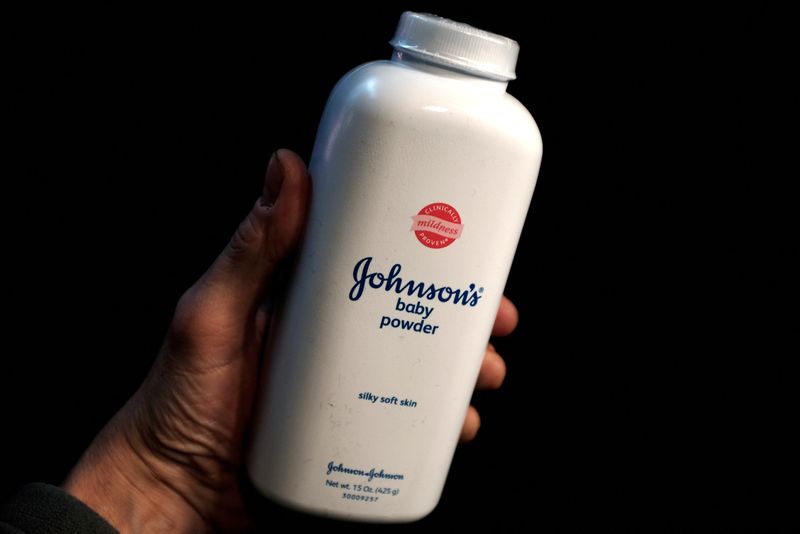By Dietrich Knauth
NEW YORK (Reuters) -Johnson & Johnson will get a new chance to contest the scientific evidence linking talc to ovarian cancer, a federal judge ruled on Wednesday, potentially disrupting more than 53,000 lawsuits the company is now facing over its talc products.
In a brief written order, U.S. District Judge Michael Shipp in Trenton, New Jersey, who is overseeing the lawsuits that have been consolidated in his court, said recent changes in the law and new scientific evidence require a fresh review of the evidence that linked J&J products to ovarian cancer.
Shipp took over the case in February 2023, after the retirement of former Chief District Judge Freda Wolfson, who had overseen the litigation since 2016.
J&J Worldwide Vice President of Litigation Erik Haas said the company was very pleased by the ruling, and that it intended to "shine a light on some of the made-for-court junk science" used in recent trials.
"The passage of time has only solidified the decades of medicine and science that support Johnson & Johnson (NYSE:JNJ)'s position in these cases," Haas said in a statement.
J&J has repeatedly denied claims that its baby powder and other talc products cause cancer or contain asbestos, a known cause of mesothelioma.
Leigh O'Dell (NYSE:DELL) and Michelle Parfitt, lead lawyers for plaintiffs in the federal litigation, said the scientific evidence that J&J products caused cancer is "stronger than ever."
"The truth of J&J’s deceptive conduct to hide the presence of carcinogens in talcum powder and mislead the medical and scientific communities has only become clearer over time," O'Dell and Parfitt said in a statement.
The talc lawsuits had been on hold from 2021 to 2023, while J&J pursued failed efforts to resolve the litigation through the bankruptcy of a subsidiary company, LTL Management.
Trials have since resumed, and the latest case ended in a hung jury on March 5.
J&J will have until July 23 to make renewed arguments about the scientific evidence in the case, according to Shipp's order.
Trials in the talc cases have had a mixed record, with major plaintiff wins including a $2.1 billion judgment in 2021 awarded to 22 women with ovarian cancer. A New Jersey appeals court in October threw out a $223.7 million verdict against the company, finding the testimony of the plaintiffs' expert witnesses unsound.
Product liability lawsuits, like the ones J&J is facing over its talc products, rely on experts to establish that the product is capable of causing the alleged harm. Federal judges decide what expert testimony is allowed at trial, based on whether it meets scientific standards first laid out by the U.S. Supreme Court in its 1993 ruling in Daubert v. Merrell Dow Pharmaceuticals.
So-called "Daubert" decisions on expert testimony can sometimes be major turning points in litigation. For example, drugmakers GSK, Pfizer (NYSE:PFE), Sanofi (NASDAQ:SNY) and Boehringer Ingelheim succeeded in ending 50,000 lawsuits alleging the heartburn drug Zantac caused cancer, after a federal judge in Florida ruled in 2022 that the claims were not backed by sound science.
When Wolfson ruled on the scientific evidence in the J&J cases in 2020, she allowed plaintiffs to present expert testimony that J&J's talc products can cause cancer based on epidemiological studies, as well as testimony that the link could be caused by talc's contamination with asbestos and heavy metals. J&J had sought to sought to bar all of the plaintiffs' experts from testifying, which would have effectively wiped out all the cases in the consolidated litigation.

Shipp's Wednesday order pointed to a December change to the federal rule of evidence governing expert testimony, which emphasized courts' role in vetting experts' conclusions and methodology before allowing them to present evidence to a jury.
J&J said that the rule change would help keep out flawed evidence, while attorneys for talc plaintiffs said that their evidence was strong enough to meet the revised standard.